[what] you don’t understand is how long this has been happening police brutality and police officers killing black ppl has been going on for so long, and nothing, NOTHING has happened.” With permission from my son I share a conversation he had with some peers via text messaging. Details of the other children are vague to protect their identities. My son is not ok. I can only imagine that his friends of color, his Black friends, and more specifically, his Black male friends are not either. 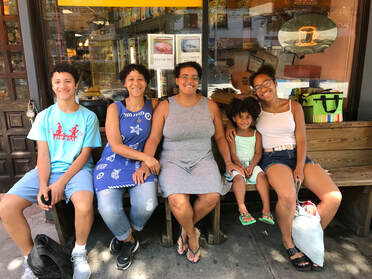 My son is a light skinned, biracial boy, part Latino and part white. He is raised within a Black, Afro-Carribean cultural household where Puerto Rican, Dominican, Latinx, Black American, African American, and African history, culture, people, and ancestors are explicitly honored and celebrated. He knows he is not racially Black, meaning that he would not mark Black on the US census. However, he is coming closer and closer to understanding that he is culturally Black and Latino and ancestrally African and European. While our DNA results do demonstrate that we have large percentages of various African ethnicities in our DNA story, I am not talking about a percentage number. I am talking more about the history my older brother and I have done to better understand the African diaspora and history within our own Puerto Rican and Dominican family tree. This rich home environment and family socialization practices are intentional. I know they are positively contributing to his self-concept (personal self-esteem + a sense that he belongs to a group). There are other macro and micro factors that influence and inform his development. He lives in a neighborhood and interacts with people in Harlem that are racially diverse -- African American; Black; Asians; Pacific Islanders; white; multiracial; Latinx (recent immigrants and Latinx people like me who have lived in NYC all their lives); and African (recent immigrants and people who have lived in Harlem for more than 20 years but still call their African country their home). His God-father is Chinese and his God-mother is white. He attends a predominantly white school (my choice because it is where I worked for 17 years and the progressive education he and my other two children receive is what I love). He is a tap dancer, having joined the American Tap Dance Foundation when he was three years old. At ATDF he has learned the history of famous Black tap dancers, female dancers, dancers of other racial backgrounds, the history of tap in NYC, and the dance forms that influenced tap, such as African, Irish and clogging. My son knows that racism never went away. Not in my 51 years and not in his 15 years. From the time he was 3 and began to ask questions about identity, I (and his other loving adults) engaged in anti-bias parenting. I have had explicit conversations about gender and genderism, sex and sexism, skin color and colorism, race and racism, religion and religious intolerance, socio-economic class and classism, gender identity and transphobia, sexual orientation and homophobia, temporarily able bodied and disability, body type and discrimination against different bodies. Why have we touched on so many identity markers and isms in his short 15 years? Because he is a human being in the United States and each and every one of these identity markers will impact his daily life either because he is on the receiving end of privileges or the devastating end of bias and discrimination, and because I want to support his ability to step up for others. So, why is my son not ok? It is because he is pained by the choice he needs to make after a challenging race conversation (or rather text exchange) he had with white peers. When he came to find me on this Monday morning in June I knew something was wrong. He was in the middle of one of his on-line classes, but it took seconds after I saw him in my office and asked, “What’s up, papi?” (my Latinx nickname for him) for him to say, “I’m so frustrated!” His school opened up Monday morning’s session, with one week left of school, with an all high school gathering to frame the conversations they were about to enter. These high school gatherings are not unusual for his school to host on various social issues. Following the 5 minute gathering, the students would move into racial affinity spaces to process the weekend's protests, the events of the past few weeks, and dare I say the past 400 years of racial atrocities. The school has a rich history of running racial affinity groups -often facilitated by the HS seniors (an amazing rite of passage), though this particular session had the adults stepping up in their advisor role. One of the challenges when the students engage in racial affinity work is that the school does not have an ongoing white affinity space. This absence is not from lack of trying. Many white students and/or adults over the past many years have tried, but they have never been able to sustain the interest of a large enough group of white people and, those who were interested, eventually took their efforts to organizing equity and whiteness discussions in other directions. Conversations and trainings about whiteness have increased in the past five years, but no such luck with a white affinity space. All this to say that many white students at my son's school are not used to active engagement in white affinity spaces and all that these sessions provide. This is where the problem on Monday began for my son. In a text exchange with a few of his white friends and one other friend of color, a text was sent from one of the white children about how boring his white affinity space was. My son affirmed that his friend’s space might be boring but he should understand that the topic is important, that even though his white friend and family have these discussions at home it is not the same as trying to figure out what to do about racism as youth, and white youth. When another white peer named his concerns about the protestors negatively impacting the spread of covid-19, my son replied, “But the fact that this has been ignored for so long that this is the point where it has come to is upsetting and disappointing I don’t support it [the stealing], it’s irresponsible and is not helping the current virus but there’s a valid reason why they’re doing it” My son did not agree with the response he got to this message and in his final text exchange before he came to get me said, “[what] you don’t understand is how long this has been happening police brutality and police officers killing black ppl has been going on for so long, and nothing, NOTHING has happened.” He didn’t come get me right after he sent this last message. He came looking for me for support after his white friend sent a picture of a video game they usually play together as a response to the text above. Later my son learned that this was the friend’s attempt at lightening the mood. To gain a deeper perspective, my son connected with three other students of color to gauge if he was making a mountain out of a molehill. The affirmation, support, and advice he received was priceless. One of his friends of color suggested that if his friend was trying to lighten the mood he could have considered, “better ways to make people feel better Than to make jokes about the situation they are taking seriously.” Another friend of color said he is giving up talking to white people about this [racism and police brutality]. A third friend of color said she was available to talk and process if he needed a friend and agreed that people not stepping up and taking action was problematic. This is when the researcher in me would elevate the work of Drs. William Cross, Janet Helms, and Beverly Daniel Tatum on racial identity development, or Dr. Derald Wing Sue on strategies for healing from racial microaggressions, or Dr. Howard Stevenson on RECAST Theory, or Dr. Ali Michael on the need for white people to build microproficiencies. But that is all I will offer now - the names of powerful people and the work they have done to inform my parenting practices. During the processing discussion I had with my son I did a few things.
I suggested a few possibilities, elicited a few from him, and asked him to think about his next step. I suggested he could:
I wanted him to know he had options and that, as devastating as it may have been to end a friendship, he did not have to care for anyone at this moment. One of the things I said to my wife later that evening is that it is not enough that he has to process his hurt and frustration, but now he has to make a decision about two ten-year long friendships with white kids. He chose. “I’m not ready to end the friendships,” he told me. Knowing that I had given him plenty to think about for one day I encouraged him to sleep on it. The next day I checked in on how he was feeling and if he had decided to connect with his white friends. He sighed heavily and shared a series of text messages that added to his frustration, BUT this exchange gave him another opportunity to name his reality and share why he is not ok. The last exchange my son sent to one of his white friends is below. I do not think at all that this is where the story ends or where their friendship ends. I end this post here because this is a catalyst moment we are experiencing for all, and certainly for interracial friendships that exist between our elders, adults, youth, and our youngest children. "Aight I just need a break Listen man let me just say that making jokes either way was inappropriate given the current situation, i appreciate the sentiment but if u were trying to lighten the mood then there were other ways to go about it. And honestly I don’t think there was a reason to lighten the mood, to look at this as something that can be moved on from by some jokes is honestly offensive. If you really did have good intentions then I appreciate that but I just need to say that it feels as though you were disrespecting me, but more importantly the lives of those who were murdered" To read more about anti-bias parenting, visit my resource page here.
5 Comments
Margaret Morrison
6/4/2020 06:40:10 am
Thank you Chap, always, for your words, your teaching, your clear strength.
Reply
6/4/2020 12:13:24 pm
Great blog, Chap. Such important details for thinking about how to address these dynamics.
Reply
Alex Morales
6/4/2020 12:21:56 pm
Thanks for sharing this, Chap! I found it very helpful. Alex
Reply
Cynthia Howells
6/7/2020 09:22:40 am
Thank you for this post. So proud of your son, Chap, for being authentic with his friends instead of holding his hurt inside. You helped him to take care of himself in an authentic way. The goal for white people is to be as authentic about their feelings about racism as your son has been. Even for "woke" white people, the hurt and shame around racism can still be too big to confront directly. Hope his friends come around.
Reply
Pat Poole Parrilla
5/2/2021 04:29:37 pm
Chap...I am very late seeing this.
Reply
Leave a Reply. |
Dr. Sandra ChapmanLatina, Lesbian, Educator, Mommy of two. Committed to enriching her life with a diverse village of people who will share their stories. Archives
June 2020
Categories
All
|

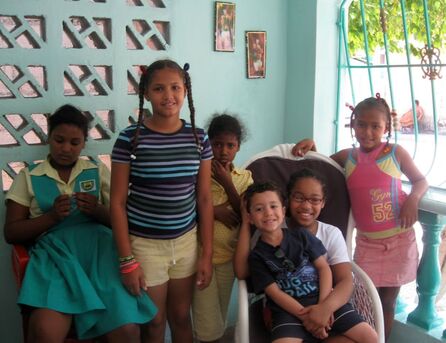
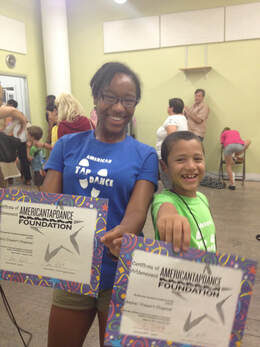
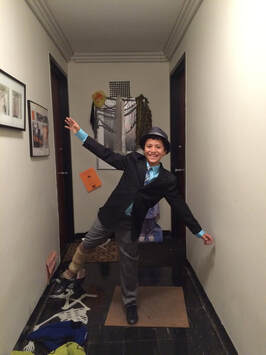
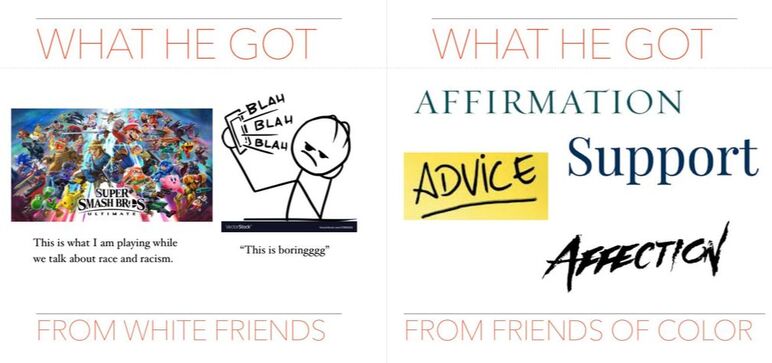
 RSS Feed
RSS Feed
